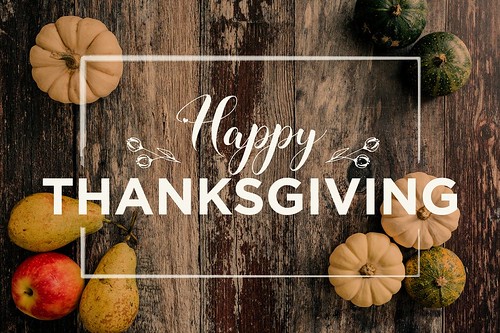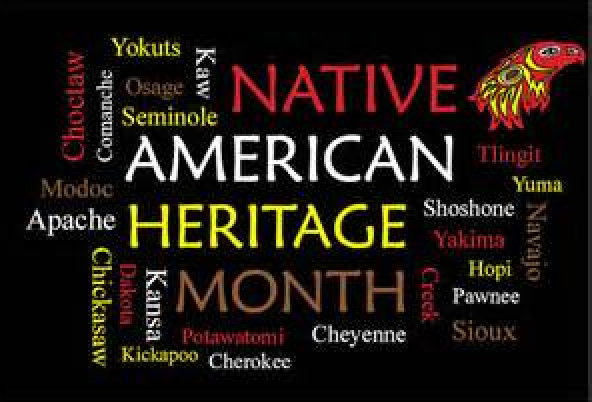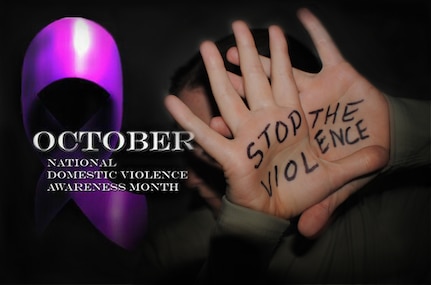This week in the Law Library we are thankful for our wonderful students, faculty, and staff as well as our library colleagues!
Thanksgiving Hours
Law Library circulation, reference, and instructional services will be closed Thursday, Nov. 24 – Friday, Nov. 25. Law students, faculty, and staff will still have their usual 24/7 access to the Law Library. Unable to stop in the Law Library during this time? E-books, online databases, and study aids are available no matter where you are 24/7!
Library Basement Now Open
Our basement is no longer under construction so the law stacks and 18 carrels are now accessible! The Law Library stacks located in the basement are unlocked Monday – Friday 8am – 5pm and accessible 24/7 with your UC Bearcat Card. Please note that the shelving range placards have not arrived so if you are having trouble finding a particular book, be sure and ask for assistance.
This Week’s Research Sessions
Tuesday, November 22, 2022
Technology in Law Practice
Shannon Kemen, Legal Technology & Research Instructional Services Librarian
Room 107
11:10am – 12:05pm
Final Exams Are Coming And We Can Help!
The Law Library has many resources to help you prepare for final exams. Be sure and see our Exam Study Guide for more information!
Accessing Law Library Study Aids
Study aids can be an important tool to help you succeed in law school. Remember that not all study aids are created equal and that the different types of study aids serve different purposes. Check out our Exam Guide: Types of Study Aids for a look at the different study aid types to which we subscribe.
Aspen Learning Library
If accessing study aids from the Aspen Learning Library, you will need to login using your UC credentials.
CALI
If using CALI, you will need to create an account (if you have not already done so) using a Cincinnati Law authorization code. You can obtain this code from a reference librarian.
LexisNexis Digital Library (OverDrive)
If accessing study aids from the LexisNexis Digital Library, you will need to login using your UC credentials.
West Academic
To create an account, click the Create an Account link at the top right corner of the Study Aids Subscription page. Use your UC email as the email address. Once you have filled in the required information to set up an account, you will need to verify your email address (they will send you a confirmation email that you will need answer to verify the email address — be sure and check your junk mail). Once you have created an account and logged in, you can use the links below to access individual study aids or you can access all study aids through https://subscription.westacademic.com.
Selected Study Aids to Help Generally with Studying Techniques
1L of a Ride
Available via the West Academic study aid subscription, this updated, revised, and expanded fourth edition include pre-planning, top student fears, the first-year curriculum, the Socratic and case methods of teaching, effective class participation, the top habits of successful students, essential study techniques, legal research and writing, exam strategies, maintaining well-being, online learning, career planning, and much more. Combines comments from hundreds of law students, empirical research, and authentic samples of signature documents from the 1L experience, including exam questions, Socratic dialogue, and student case-briefs, class notes, and course outlines.
Creating Study Aids
Available through CALI, this CALI lesson introduces you to law school study aids. It begins with a brief overview of self-regulated learning and Bloom’s learning taxonomy. Then, the lesson introduces law school study aids by pairing them with learning objectives at each level of the taxonomy. Finally, the lesson concludes with an activity designed to help you reflect on your learning. It can be used as an introduction, supplement, or as review. Learning Outcomes On completion of the lesson, the student will be able to: 1. Understand the relationship between self-regulated learning, metacognition, and Bloom’s taxonomy and your learning. 2. Create study aids to help you remember, understand, apply, analyze, evaluate and create important law school concepts. 3. Reflect on your learning.
Excelling in Law School: a Complete Approach
Available through the Aspen Learning Library subscription, this text outlines the available resources and study-aids and shows how to effectively use new technologies such as websites that distribute outlines, companies that provide MP3s of detailed lectures on first year courses, student-maintained outline banks, recorded lectures, professor podcasts, and PowerPoint slides. Students learn the specific, unique skills required to approach law reviews and scholarships and to hunt for jobs.
Hard-Nosed Advice from a Cranky Law Professor
Available through the LexisNexis Digital Library (Lexis OverDrive), this book addresses those tasks that students commonly face in law school: from reading and briefing cases, to outlining, to preparing and taking exams, to being called on in class. The book also provides advice on success outside the classroom, including preparing for the bar exam. In this new, updated edition, the authors enhance each topic by simplifying the approach even further and providing additional hypotheticals to turn the abstract into the concrete. The second edition includes new examples of case briefing, outlining, exam writing, and bar essays, and also includes an entire chapter dedicated to the skill of legal writing. In this new chapter, the authors transform a complicated writing course into a simple, step-by-step guide that makes legal writing attainable for any law student.
Hyped About Hypos
Available through CALI, this CALI lesson will cover the what, why, when, where, and how of hypos so law students can conquer the material they are learning and be prepared for exams. Learning Outcomes On completion of the lesson, the student will be able to: 1. Define the term “hypothetical” in the law school context. 2. List several reliable sources of hypotheticals. 3. Explain how to use hypotheticals to prepare for an exam. 4. Discuss why using hypotheticals is important for success in law school.
Law 101
Available through the LexisNexis Digital Library (Lexis OverDrive), Law 101 gives a behind-the-scenes look at what law school’s really like. The advice covers all aspects of law school, and ranges from academic advice on such topics as study techniques, classroom skills, and tips for exam success, to the best ways to participate in extracurricular activities, maintain healthy relationships outside of law school, and get a job after graduation. A companion documentary, available online, provides additional perspectives on life in law school.
Learning Outside the Box
Available through the LexisNexis Digital Library (Lexis OverDrive), this book’s purpose is to provide research-based learning strategies for law students who learn differently. If you are a student who has been diagnosed with a learning disability or if you simply have a unique learning style, you may need to outline differently, read cases differently, and approach law school in a more active, engaged, and efficient manner. In addition to covering reading and briefing cases, the book covers outlining and tackling essay and multiple choice exams.
Learning Tips and Retention: Discussions in Law School Success
Available via CALI, this podcast discusses tips to help you remember more information and to perform better on law school exams. Three learning strategies are explained: spaced repetition, the testing effect, and cognitive schema. Briefly defined, spaced repetition incorporates periodic studying throughout the semester. The testing effect can be more challenging and is exactly what it sounds like; it is testing yourself to see whether or not you know the material. Lastly, the podcast explains how to create a cognitive schema as an organizational structure that you can use to retain information.
Metacognition
Available through CALI, this lesson focuses upon the concept of metacognition and teaches you how to enhance your understanding about how you learn to better improve your study, organizational, test-taking and self-assessment skills with the goal of improving your performance in law school. The lesson should help you better understand your individual learning process and show you how to use this information to develop study and test-taking skills needed for success in law school. Learning Outcomes On completion of the lesson, the student will be able to: 1. Better understand how to develop your skills as a law school learner. 2. Create a schedule, and develop study strategies that work in tandem with this schedule, that helps you work more effectively and efficiently. 3. Assess your own work to better understand where you performed well, where you struggled, and how your study and test-taking strategies impacted your performance.
Secrets to Improved Memorization
Final exams require recalling information from over 14 weeks of the semester. Available through CALI, this lesson provides insight on how to remember the vast information from class to apply on final exams.
Your Brain and Law School
Available through the LexisNexis Digital Library (Lexis OverDrive), the first part of this book translates the technical research, explaining learning strategies that work for the brain in law school specifically, and calling out other tactics that are useless (though often popular lures for the misinformed). This book is unique in explaining the science behind the advice and will save you from pursuing tempting shortcuts that will take you in the wrong direction. The second part explores the brain’s decision-making processes and cognitive biases.
Past Blog Postings on General Final Exam Preparation:
Study Tips & Law Library Resources for Outlining
Study Aids to Help You with Different Exam Formats & Study Aids for Exam Review
American Indian and Alaska Native Heritage Month
This month is American Indian and Alaska Native Heritage Month! In 1990, President George H.W. Bush signed a joint congressional resolution designating November 1990 as “National American Indian Heritage Month.” Similar proclamations have been issued every year since 1994. Celebrate with us as we explore the contributions and history of the Native people in the United States of America.
5 More Selected Resources to Learn More About American Indian and Alaska Native Heritage
American Indian and Alaskan Native Documents in the Congressional Serial Set: 1817-1899
This collection offers detailed contemporaneous documentation of political, military, and governmental activities related to indigenous peoples of the continental United States and Alaskan territory during the 19th century. These government documents were scanned from the print collections of the Oklahoma Department of Libraries and the University of Oklahoma Libraries. They were identified using Steven L. Johnson’s bibliography, Guide to American Indian Documents in the Congressional Serial Set: 1817-1899, published by Clearwater Publishing Company in 1977.
National Indian Law Library Tribal Law Gateway
The National Indian Law Library (NILL) is a law library devoted to American Indian law. It serves both the Native American Rights Fund (NARF) and the public. NILL serves the public by developing and making accessible a unique and valuable collection of Indian law resources and by providing direct research assistance and delivery of information.The Tribal Law Gateway provides access to tribal law – which includes the codes, constitutions, intergovernmental agreements, and legal opinions of Native governments.
National Conference of State Legislatures, Statewide Tribal Legislation Database
Every year numerous bills are considered by state legislatures that can affect tribal communities. These bills address a variety of issues including the environment, education, health care, taxes/revenue, including gaming and education. View introduced, pending and enacted legislation for the current legislative session here.
Tribal Court Clearinghouse
The Tribal Law and Policy Institute (TLPI) is a Native American operated non-profit corporation organized to design and deliver education, research, training, and technical assistance programs which promote the enhancement of justice in Indian country and the health, well-being, and culture of Native peoples. The Tribal Court Clearinghouse is a comprehensive website established in June 1997 to serve as a resource for American Indian and Alaska Native Nations, American Indian and Alaska Native people, tribal justice systems, victims services providers, tribal service providers, and others involved in the improvement of justice in Indian country. It is one of the most comprehensive websites on tribal justice system issues, and includes a wealth of tribal, state, and federal resources.
Tribal Treaties Database
This database includes agreements between tribal nations and the United States (1778-1886) published in the 1904 work “Indian Affairs: Laws and Treaties” (Volume II), compiled and edited by Charles J. Kappler. As you view the treaties in this database, editorial margin notes are included. Links to Kappler’s original text and digitized treaties held at the National Archives can also be found throughout the site. Finally, a recently updated, comprehensive index complements this work.











